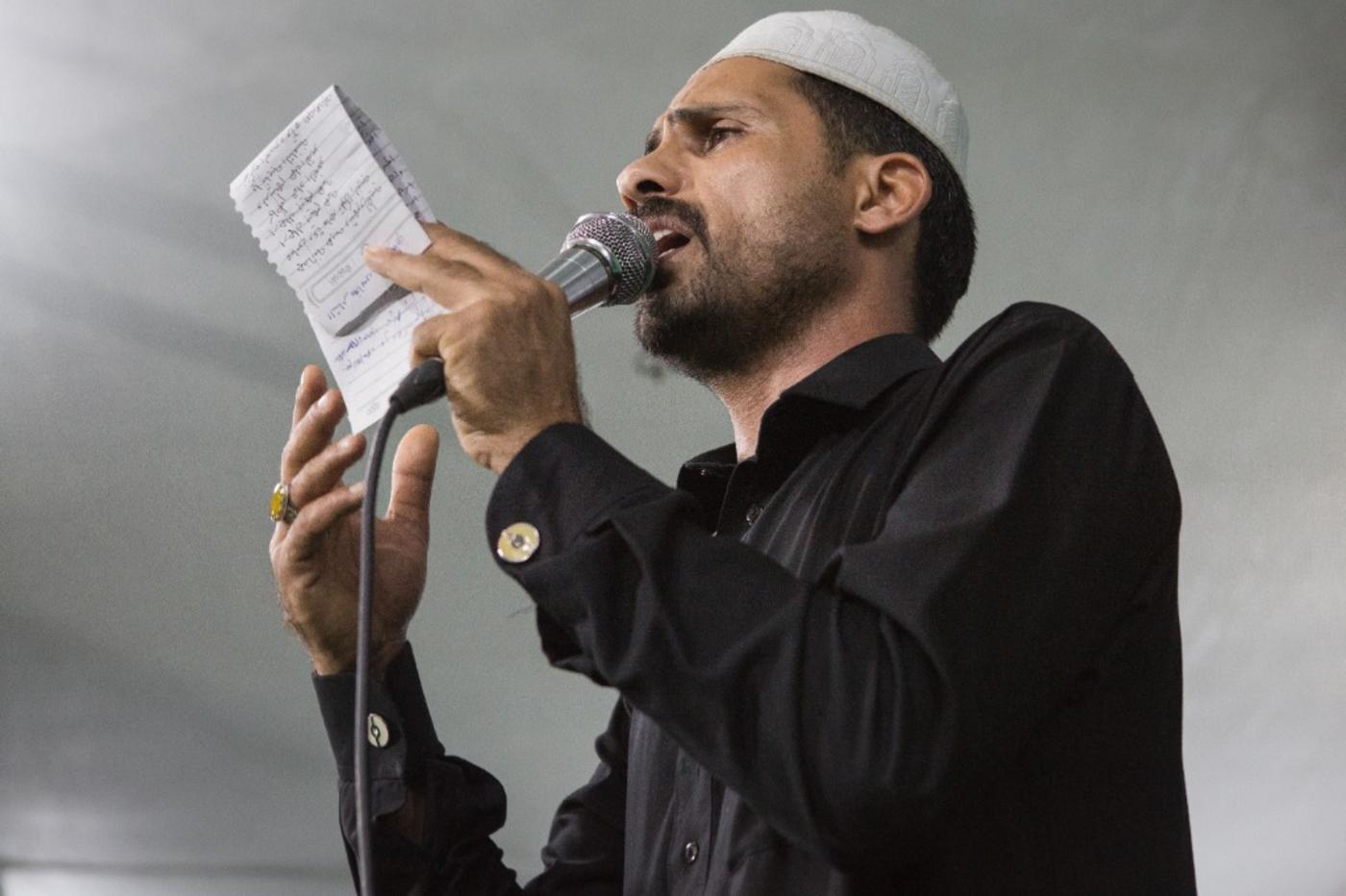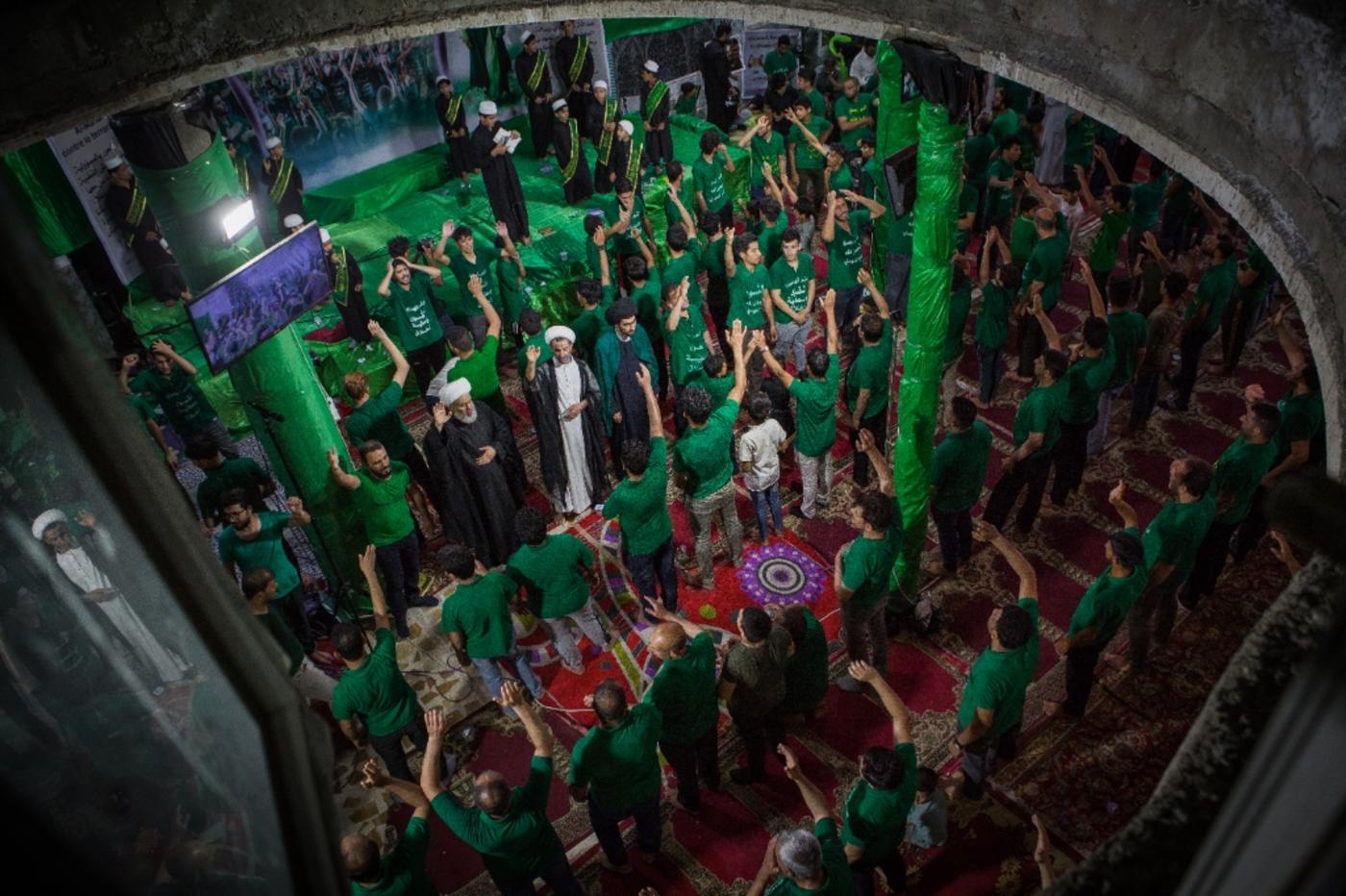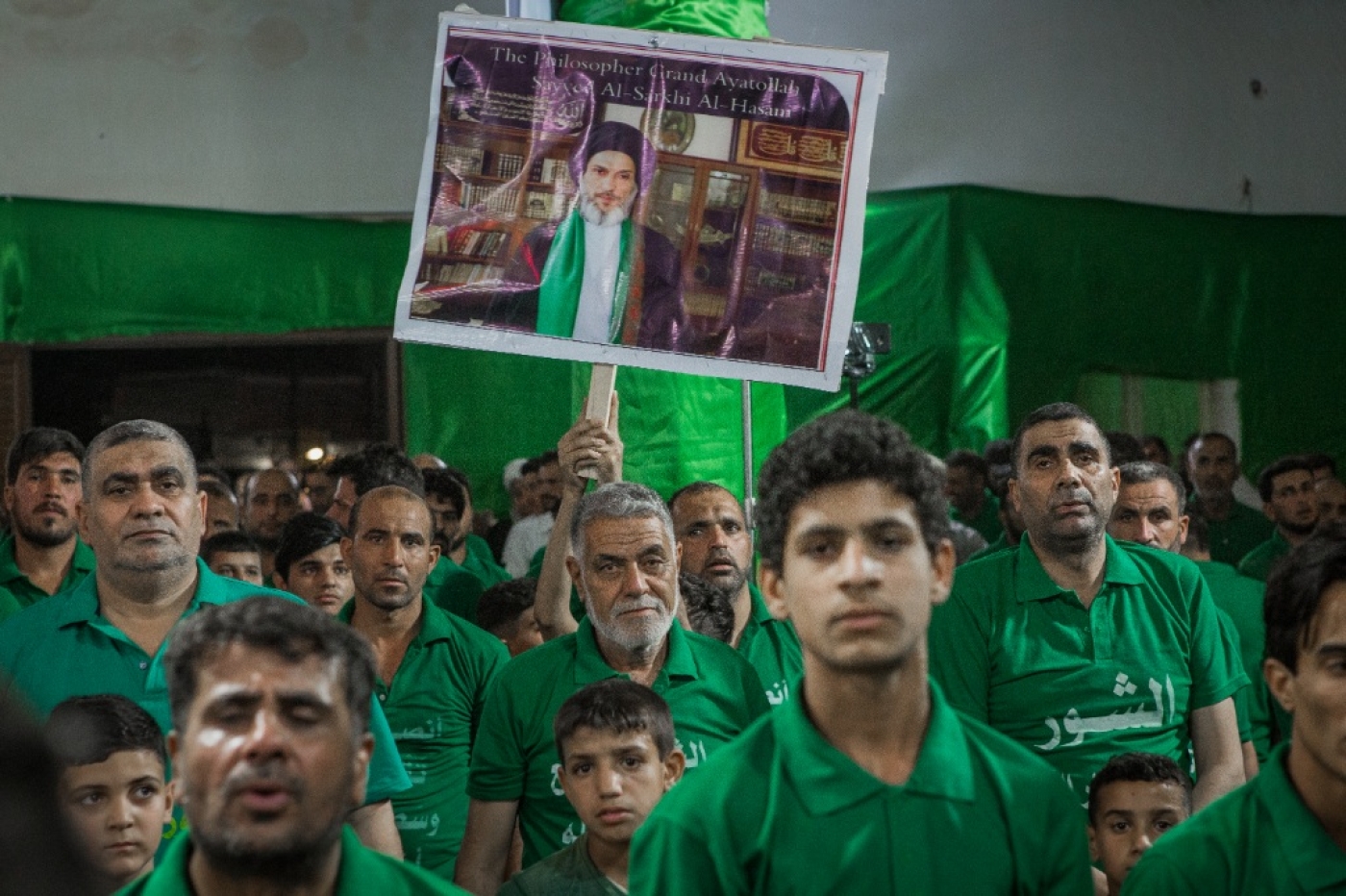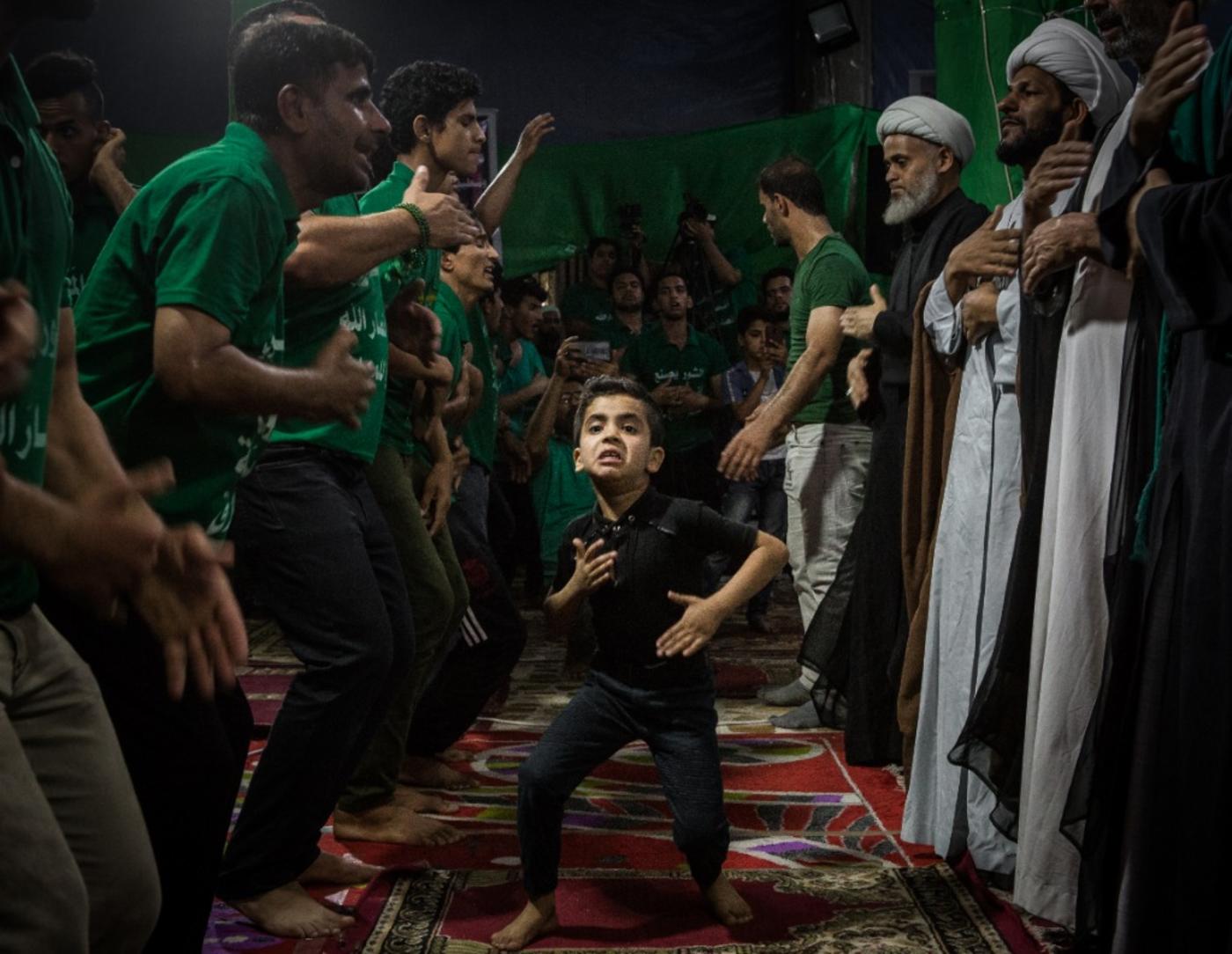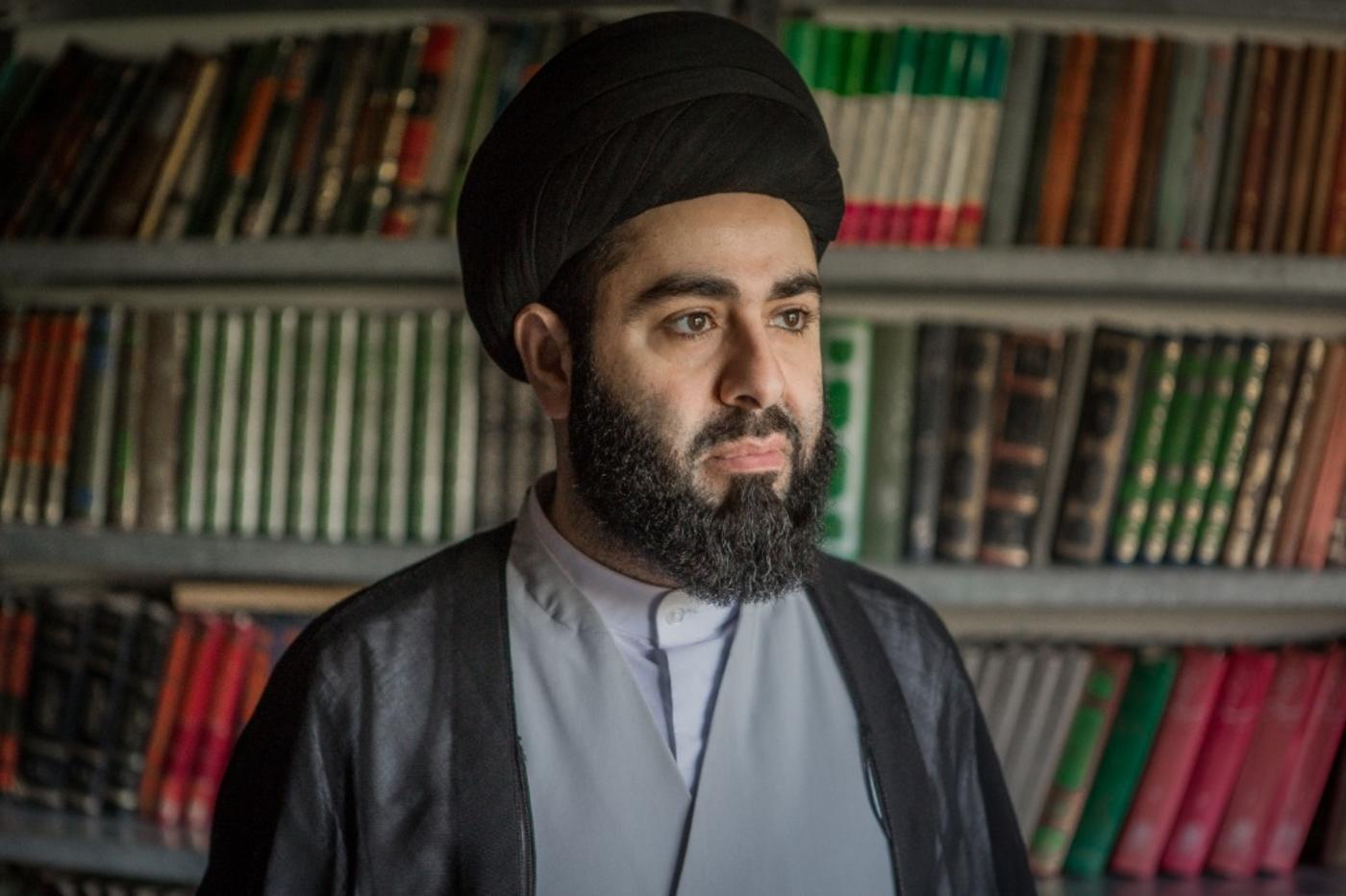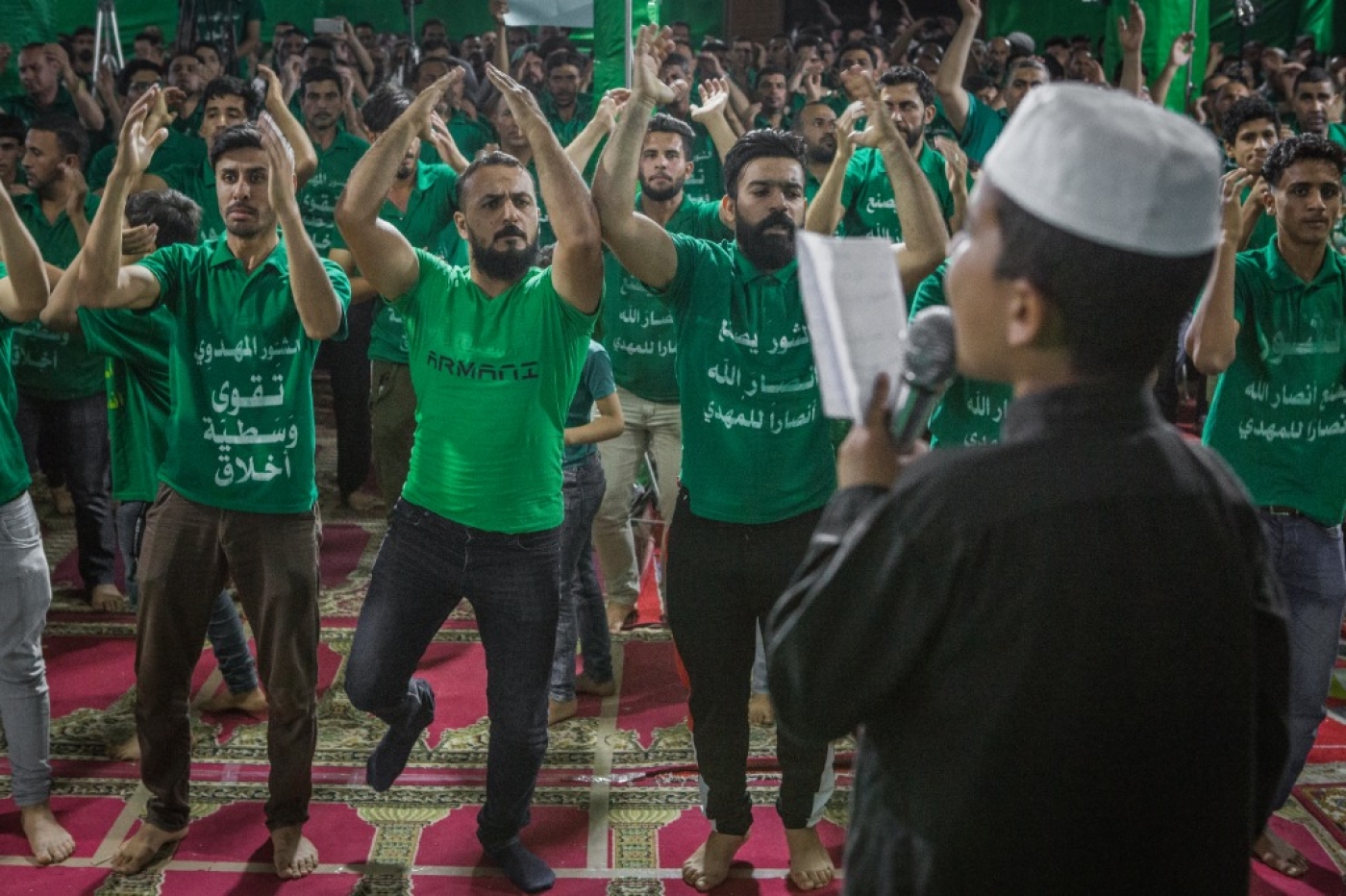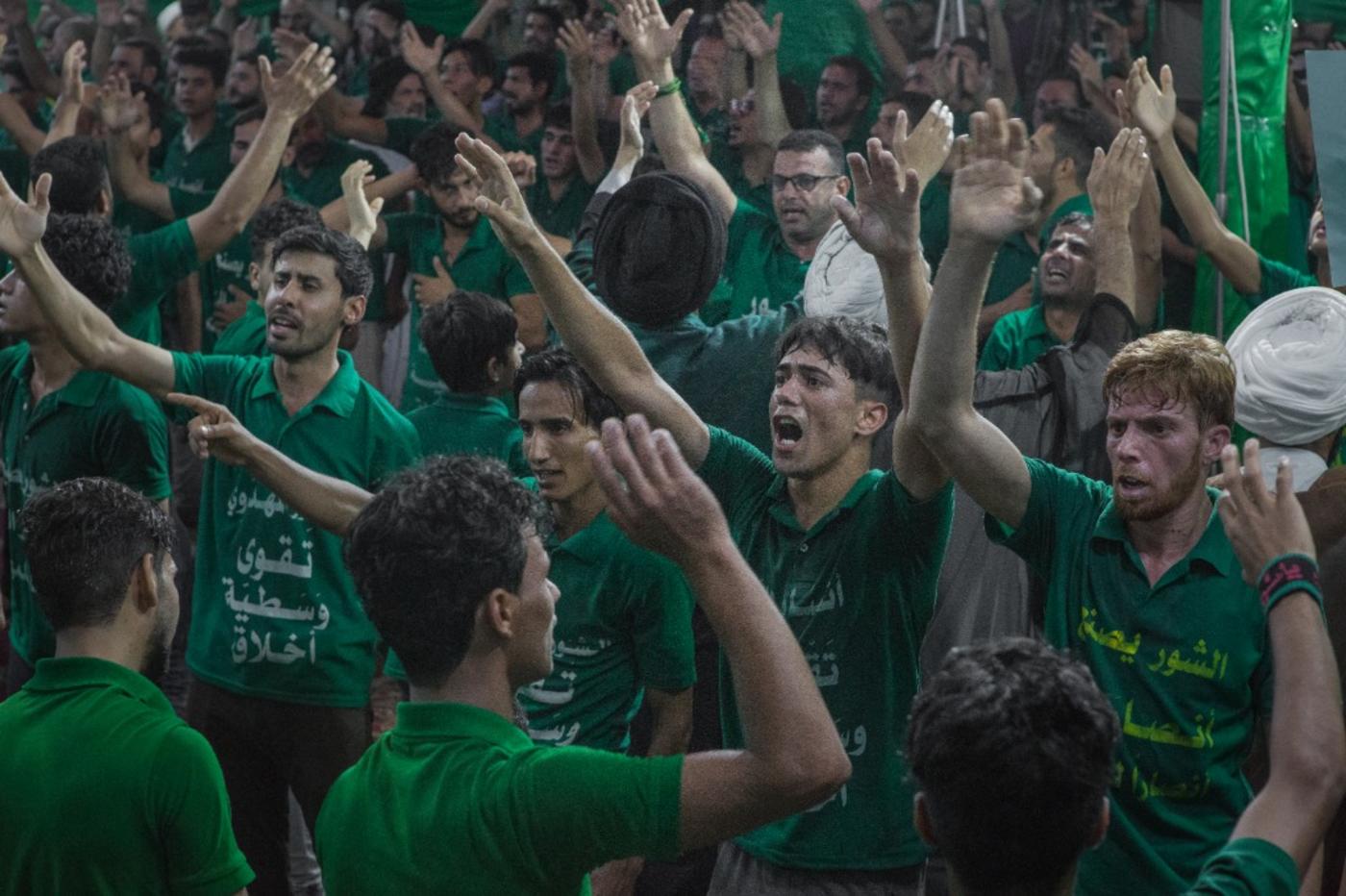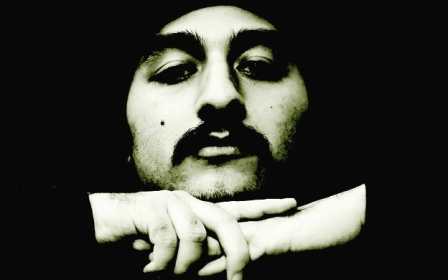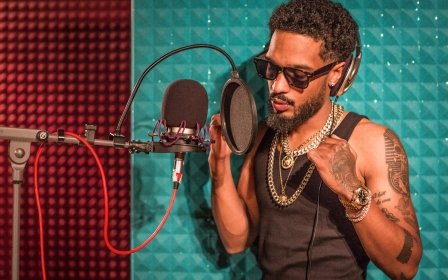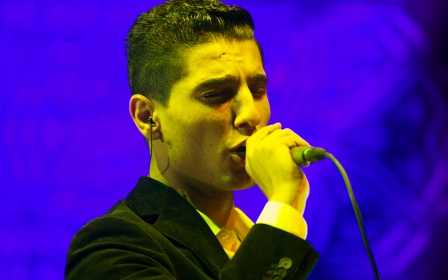Baghdad beats: Meet the Shia rappers raising the roof
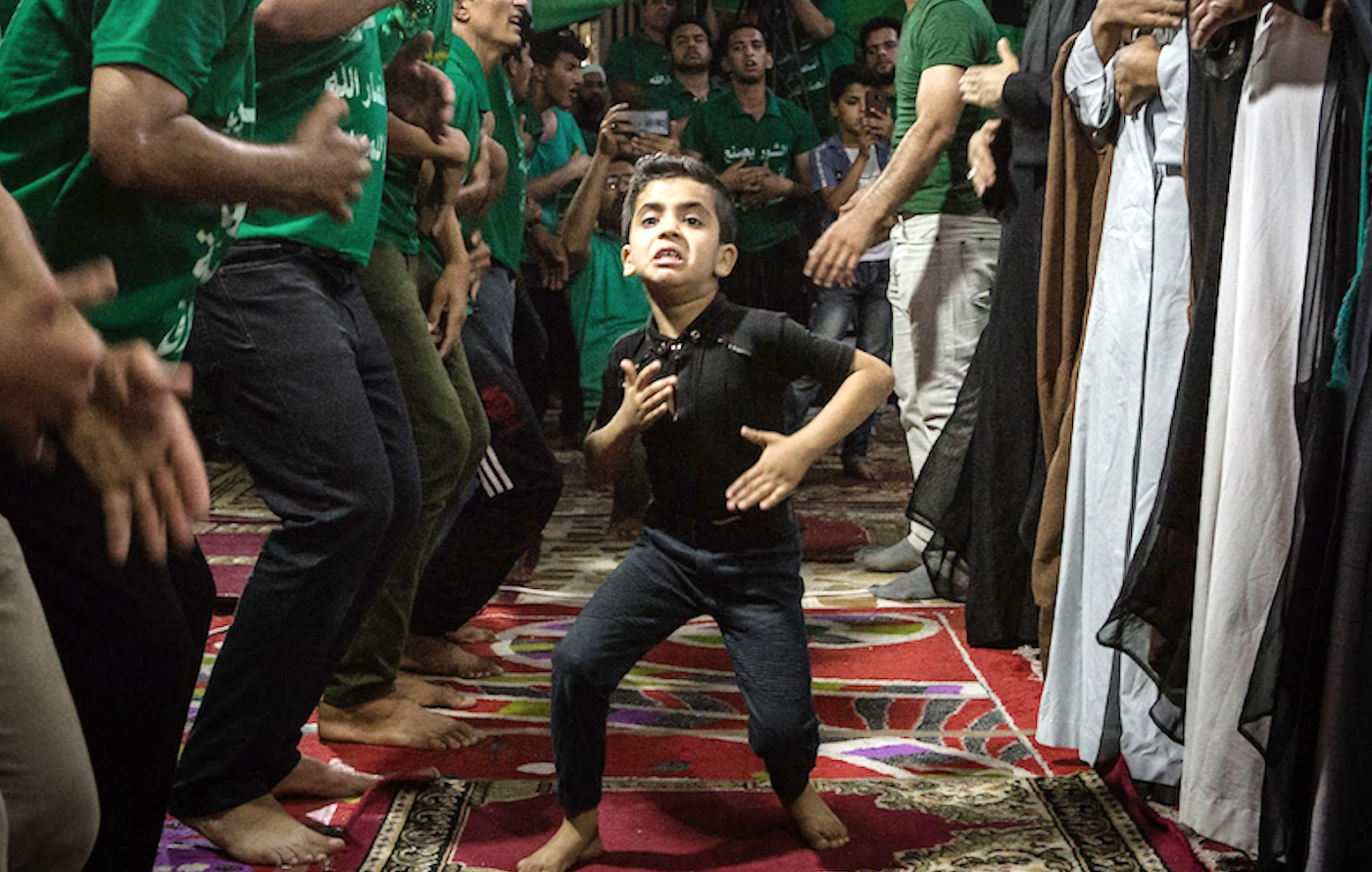
In the premises of a mosque in Al Sha'ab, a working-class district of Baghdad, followers of the al-Sarkhi movement, a religious group within the Iraqi Shia sect, noisily engage in “Islamic rap”.
The mosque walls vibrate to the beat of the music. Inside, dozens of young men start to fiercely hit their chest in rhythm.
Microphone in hand, a rapper performs traditional latmiyat - chanted verses mourning Muslim icons.
This unconventional ritual is a frontal challenge to Iraq’s religious establishment, and aims to revive spirituality and religiosity among the youth by speaking their “modern language”.
"Western rap calls for immorality, drugs and crimes, while ours promotes dialogue, peace, meditation, worshipping and inter-faith understanding," 40-year-old rapper Lo’ai Mohammed told MEE.
Shia cleric Mahmoud al-Sarkhi is at the forefront of this movement, which claims up to 10,000 followers - although the figure is doubted by local researchers on Shia Islam (they prefer not to be identified).
Sarkhi wasn’t always known for religious rap. In 2014, Reuters reported that Sarkhi and his armed followers previously clashed with US forces, as well as “Iraqi security forces and supporters of Grand Ayatollah Ali al-Sistani, the most revered Shiite cleric in Iraq.”
In the pulsating atmosphere of Al Sha'ab’s mosque, participants are crowded together and sweat heavily as they gesticulate in rhythm to the music.
“Thanks to our Islamic rap, very much liked by young Iraqis, youth are returning to the mosque and we can claim to have achieved one of our objectives,” Sheikh Salem al-Jumahi shouts over the sound of poems, clapping and jubilation.
Still, many Iraqi youth doubt the sincerity of the initiative. Ghufran Ibrahim, 25, studies pharmacy in Baghdad and questions the true intentions of any Iraqi religious leaders. “My family and I don't believe their words because they seek personal benefits out of their speeches."
Iraqis are losing their religious faith, according to a recent BBC News survey, with trust in religious leaders plummeting.
“After all that had happened in Iraq people have started to doubt them, which causes an increase in atheism,” she told MEE.
A 24-year-old medical student who lives in Baghdad and prefers not to be named, told MEE that Iraqis once trusted their religious leaders to develop the country. “And now, Iraq is left with two groups only, either extremists or atheists,” she said.
Sayed Hossein Qazwini, above, a professor of philosophy of Islamic law in Karbala, acknowledges that Islam is losing momentum among youth. “Political parties who spoke in the name of religion have ruined Islam’s image,” he says.
But he sees the al-Sarkhi movement as a worrying development. “In Islam, music is not allowed and they mix religion with rap, which is known for indecent behaviour. Rap music is okay in Los Angeles, but not in Iraq,” the scholar told MEE.
From his office in Karbala, Qazwini claims that the Iraqi religious establishment should learn to speak the language of the youth and make sure that their speeches do not conflict with science.
“I think we also need to promote peace and harmony with other religions further. Unfortunately, we still have a long way to go,” the scholar said.
The al-Sarkhi movement sees its version of religious rap as part of its efforts to bring young people back to religion, which it does also by encouraging them to read the Quran.
Qazwini concedes the movement has found a way to reconnect with the youth: “In a way, it is successful and puts more responsibility on the shoulders of our religious establishment.
"Let’s face it, we have not done enough to reach out to the youth and if we don't act, we may lose them all,” Qazwini said.
But his misgivings remain. “Today it is rap, but if we open this door, tomorrow there might be something else, where is it going to lead religion?”
However rapper Lo’ai Mohammed answers that rap is a global language understood by all youth in the current era. “It is a normal language to convey messages,” he says.
All photography copyright Sebastian Castelier/Middle East Eye
Middle East Eye propose une couverture et une analyse indépendantes et incomparables du Moyen-Orient, de l’Afrique du Nord et d’autres régions du monde. Pour en savoir plus sur la reprise de ce contenu et les frais qui s’appliquent, veuillez remplir ce formulaire [en anglais]. Pour en savoir plus sur MEE, cliquez ici [en anglais].


